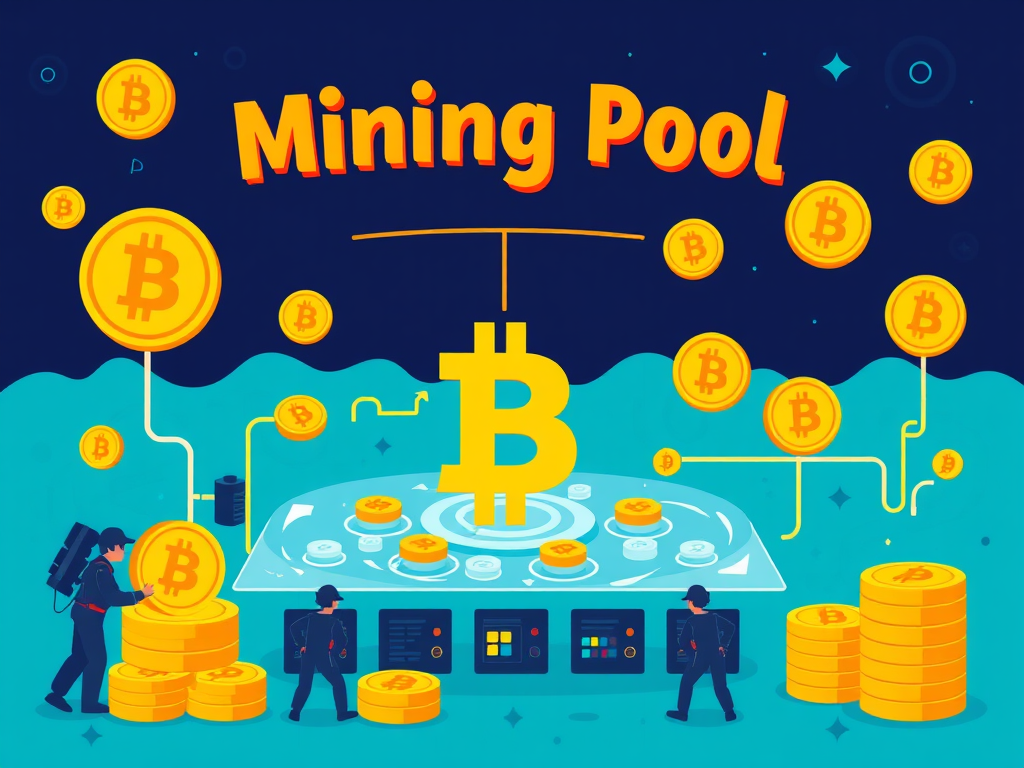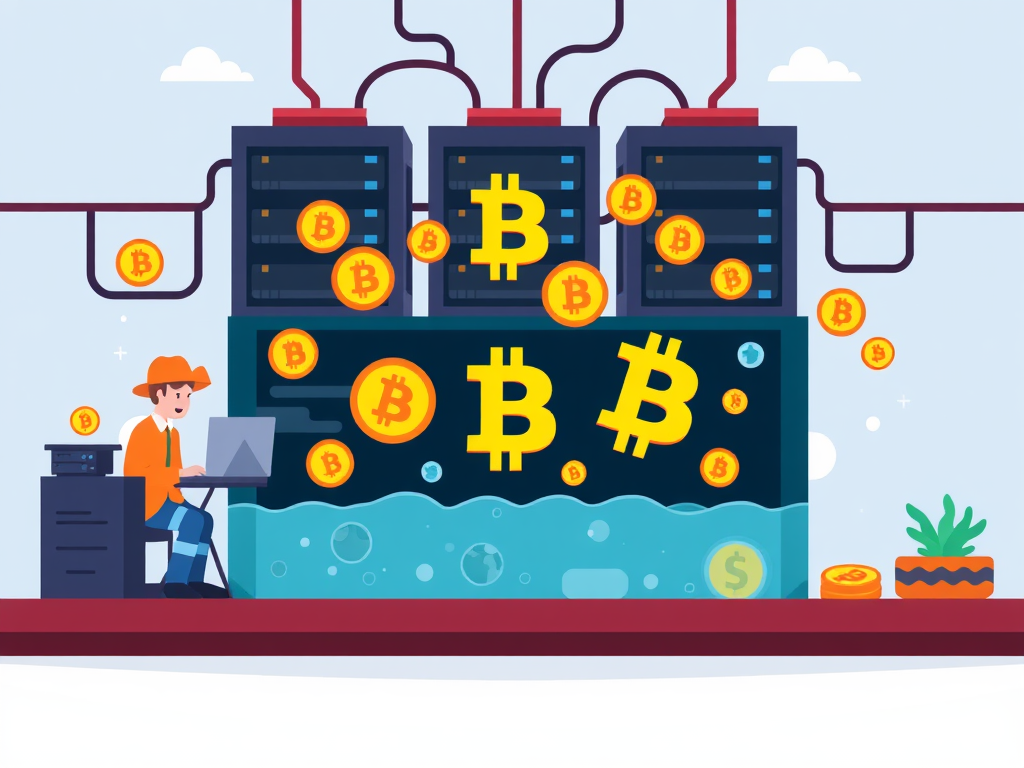
Bitcoin mining is the process of creating new bitcoins and verifying transactions on the Bitcoin network. However, as mining has become more complex and competitive, many individual miners find it difficult to succeed on their own. This challenge has led to the rise of mining pools. In this article, we will explore what mining pools are, their benefits, and the challenges they present in the world of Bitcoin mining.
What Are Bitcoin Mining Pools?
A Bitcoin mining pool is a group of miners who come together to combine their computing power. By working as a team, they increase their chances of solving complex mathematical problems needed to mine new blocks. When a block is successfully mined, the rewards—currently, a combination of new bitcoins and transaction fees—are distributed among the pool members based on how much work each contributed.
How Mining Pools Work
Miners in a pool contribute their computing power, known as hashing power, to the group. The pool uses this combined power to solve blocks more quickly than any single miner could do alone. When the pool successfully mines a block, the reward is divided among all members, often depending on their contribution to the pool’s total hashing power. This system allows even small miners to participate and earn rewards more consistently.
Benefits of Mining Pools
1. Better Chances of Earning Rewards
One of the most significant advantages of joining a mining pool is that it increases the likelihood of earning Bitcoin rewards. Solo miners often struggle to find blocks due to the high difficulty level. By pooling resources, miners can solve blocks more frequently, leading to more consistent payouts.
2. Steady Income
Mining pools provide a more stable income compared to solo mining. Instead of waiting long periods to earn anything, miners receive smaller but more regular payouts. This steady income can be particularly beneficial for those who rely on mining as a source of income, helping them manage their finances better.
3. Lower Risk of Earnings Fluctuation
Solo mining can lead to high variance in earnings, where a miner may go weeks or even months without earning anything. In contrast, mining pools help reduce this uncertainty, allowing miners to receive payouts more predictably. This lower risk makes mining a more attractive option for many individuals.
4. Access to Help and Resources
Many mining pools offer additional resources, such as educational materials, technical support, and community forums. These resources can be especially helpful for new miners who may not have extensive knowledge of the mining process. Being part of a community can provide guidance and encouragement, making the experience more enjoyable.
5. Enhanced Collaboration
Mining pools foster a sense of community among miners. By working together, members can share tips, strategies, and experiences. This collaboration can lead to better understanding and improvement in mining techniques, ultimately benefiting all participants.

Challenges of Mining Pools
1. Centralization of Power
A significant concern with mining pools is the potential for centralization. Large pools can control a large portion of the network’s hashing power, which poses a threat to the decentralized nature of Bitcoin. If a few pools dominate the network, they could potentially influence decisions or even carry out attacks, undermining the security of the entire system.
2. Pool Fees
Most mining pools charge fees for their services, which can range from 1% to 5% of the rewards. While these fees are often justified by the benefits provided, they can eat into miners’ profits. For those with lower hashing power, these fees might significantly reduce their earnings, making it essential to choose a pool wisely.
3. Trust Issues
Joining a mining pool requires a level of trust in the pool operator. Miners must rely on them to distribute rewards fairly and maintain transparency. Unfortunately, there have been instances of dishonest pool operators taking advantage of miners, leading to financial losses. It is crucial for miners to do their research and choose reputable pools.
4. Dependency on Pool Performance
Miners in a pool are dependent on the pool’s performance. If the pool is not efficient in mining or experiences downtime, miners may earn less than they would expect. This reliance on the pool can be a disadvantage compared to solo mining, where miners have complete control over their operations.
5. Limited Control
When miners join a pool, they often have limited control over the mining process. Pool operators make key decisions, such as which transactions to include in blocks and how to distribute rewards. Some miners prefer the independence of solo mining, where they can make all the choices themselves.
Conclusion
Bitcoin mining pools provide a practical solution for individual miners looking to increase their chances of earning rewards in a challenging environment. While they offer numerous benefits, such as more consistent earnings and access to resources, there are also challenges that miners should consider, including centralization and trust issues. As the Bitcoin network continues to evolve, understanding the dynamics of mining pools will be essential for miners aiming to optimize their operations and earnings. By weighing the pros and cons, miners can make informed decisions about whether to join a pool or mine solo, ultimately shaping their experience in the world of Bitcoin.






